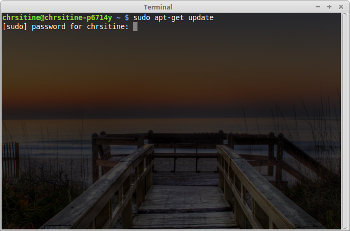I thought about ignoring this one and letting it slide, but it’s too priceless, too typically Microsoft, not to pass on. It seems that Redmond has been inadvertently infecting Windows computers with ransomware through its MSN website. Not to worry, however. The company is happy to hand you a tool to remove the malware, which is akin to locking the door after the horse is gone, as your files will by then be locked up tighter than a waterproof safe.
Christine Hall has been a journalist since 1971. In 2001, she began writing a weekly consumer computer column and started covering Linux and FOSS in 2002 after making the switch to GNU/Linux. Follow her on Twitter: @BrideOfLinux


 Claude and Jane are good folks. Both in their mid 70s. They live on their combined retirement funds and spend their time keeping busy with kids, grandkids, and from what I hear, a great-grandchild in a matter of months. They come over for coffee or tea at times, and we always see them at community center events. They are not well off by any standard, but they do okay…until last Saturday.
Claude and Jane are good folks. Both in their mid 70s. They live on their combined retirement funds and spend their time keeping busy with kids, grandkids, and from what I hear, a great-grandchild in a matter of months. They come over for coffee or tea at times, and we always see them at community center events. They are not well off by any standard, but they do okay…until last Saturday.
 “We developed Purism so that users can have access to the highest quality computers without compromising these beliefs,” the Purism website states. “The founder of Purism developed the Philosophical Contract, that we all abide by, which was adopted from the Free Software Foundation, and expanded to include hardware manufacturing as it relates to software.”
“We developed Purism so that users can have access to the highest quality computers without compromising these beliefs,” the Purism website states. “The founder of Purism developed the Philosophical Contract, that we all abide by, which was adopted from the Free Software Foundation, and expanded to include hardware manufacturing as it relates to software.”
 We might as well start with the moral of this story: Don’t protect Windows with Windows.
We might as well start with the moral of this story: Don’t protect Windows with Windows.


 Ironically, this side door is intended to be a security door for third party add-ons that every Windows machine needs to keep it safe from cracker hackers — if that’s indeed possible. And this security tool is usually more trusted by Microsoft system admins, especially those outside the U.S., than Windows itself.
Ironically, this side door is intended to be a security door for third party add-ons that every Windows machine needs to keep it safe from cracker hackers — if that’s indeed possible. And this security tool is usually more trusted by Microsoft system admins, especially those outside the U.S., than Windows itself.
 I participate in a group of professional penetration testers (the nice folks who help you test your security as if they were the bad guys) called
I participate in a group of professional penetration testers (the nice folks who help you test your security as if they were the bad guys) called 
 The neglect he mentions has caused more than a few near misses that fell inches short of disaster, with two major incidents happening last year alone.
The neglect he mentions has caused more than a few near misses that fell inches short of disaster, with two major incidents happening last year alone.